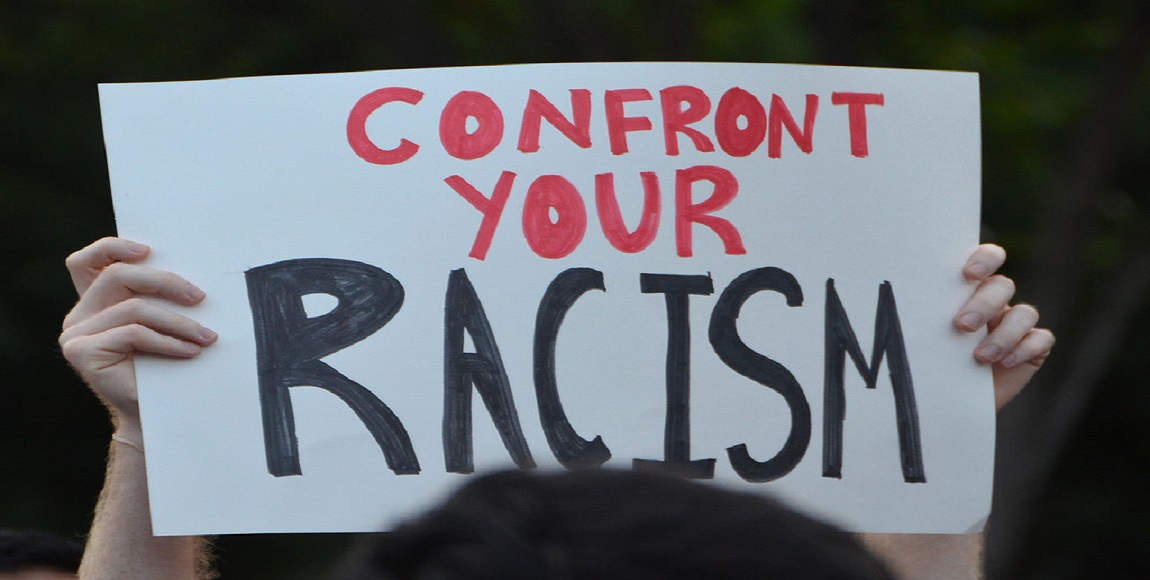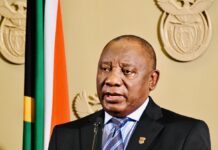Noted antiracism practitioner Dr Robin Di Angelo, who coined the term white fragility, talks about how in her workshops she asks people of colour “how often to do we give white people real, honest feedback about the ways in which they are racist?” Di Angelo, who is white, says that most times there are murmurs and shuffling, all indications that the answer is ‘almost never, not really’, writes AYESHA FAKIE.
As a woman of colour myself this doesn’t surprise me, I certainly silence myself sometimes when I experience racism (and misogyny), from the large to the small, all the time making decision calculi about whether this one is the battle to fight, and what are the potential consequences for me. It’s not that some are more important than others but that fighting racism and misogyny, personally, daily, is overwhelming, all-encompassing and exhausting. So, I, and I am sure many other persons of colour, mostly just sigh and move on even when inside our hearts rage in injustice, demanding we shout. We swallow our voices in white spaces for many reasons related to self-care; the irony that it causes more harm to souls not lost on us.
But we do this because the white fragility that defensive white people wield is so powerful. And on top of that, our racist society enacts itself in such a way that systems and processes and norms serve only to support and reinforce white fragility, compounding the racism experienced by us, or the misogyny or phobia experienced by transgender and queer persons, and the negative repercussions we must face when we choose to address it.
When Di Angelo, in a podcast series put out by Duke University, followed that question, in her telling, with ‘how would it feel‘ to actually give white people, especially well-meaning non apartheid nostalgics (in our case) who intellectually admit racism is a problem one answer from a black man was that “it would be revolutionary”.
It would be revolutionary. Truly. I cannot even imagine telling a white person how their actions are racist every time it happens to me. The way you would tell someone hey you’re sitting in my airplane seat or hey please stop bumping your shopping cart into my ankles. Because white privilege, talked about in how it’s like playing the game of life on easy mode (even if you’re poor) has another weapon in white fragility. A flip side in how that very white privilege also works to create a defence mechanism, a shield, a bubble of sorts that insulates white society from the stress of racial conversations. This white fragility, through tears, especially white women’s tears as part of toxic white femininity, anger, cries of ‘reverse racism’, or being “sensationally, histrionically bad at discussing racism“, “some of my best friends ares”, “I don’t care if you’re black or pink or purple or white I don’t see colour” and “I marched in the 80s/90s for your freedom” works to keep POC in the white person’s orbit in our place.
Professor Neil Roos: How Ordinary Whites Were Caught In Apartheid Society
And working with internalised and overt oppression, from the womb to the grave (contrast the medical care received by black people from prenatal care – even someone as wealthy as Serena Williams had to fight to be heard on issues faced predominantly by black women – to various life threatening illnesses black people are dismissed on) conditions us all into a racist worldview. Even those POC who succeed as we get more proximal to power and thus whiteness, in check.
Keeping POC in check with the implicit and sometimes explicit goal of keeping black discourse, decolonisation and antiracism in check through white defensiveness serves only to foreground the feelings of whiteness. It is white narcissism. It upholds white supremacy at the micro level, in workplaces, in schools, in clubs, and the like.
Yet if we cannot even talk about interpersonal or localised racism without white defensiveness or white guilt narcissistically taking centre stage, how are those of us, white people included – those who have done the hard work of understanding, listening, humbling themselves – ever meant to have real conversations about dismantling the overt, exclusionary, disastrous, life and death structures of society that maintain, even enhance racism in this 21st century so far defined by mass wealth inequality? Is it because the amorphous and nebulous white supremacy – through distinct but is happy for us to focus on the Mombergs and Catzsevalos’s – important as they are – while the overt exclusionary systems of dominant power remain untouched?
What we need is more. We demand more. We demand discourse and action that goes beyond respect and grace and kindness, which are important for progress at an interpersonal anti-racist or non-racist (and those are two very different things) level, for comity and social cohesion and functional integrated neighbourhoods.
But to really address racism- to address how it still means kids die in pit toilets, how most South Africans live at or near the food poverty line, how most South Africans cannot afford healthcare, needs to happen at scale. At the level of society. And in the way our societies and nations are currently set up it needs to happen via government. So anti racism and dismantling white supremacy needs to happen via policy, to equalise power and to equalise opportunity. We need to dismantle systemic structural racism and the insidiously violent concept it spawned from, white supremacy.
Because black poverty isn’t natural. White progress isn’t natural. It is by design, man-made, built on the creation of the ‘inferiorised black’ (Indians, Africans and Native Americans) created by the British Empire to “legitimise” slavery. And while ignorant reactionary fascists popping up right here at home (or did they ever go away?) react with “but there were white slaves too!” is an unsurprising failure to understand how the modern global geopolitical economic landscape came to be, and it wasn’t on the back of mass white enslavement and displacement.
“We Are Not Post-Racial”: Author Kharnita Mohamed On Identity In SA
My appeal to white people, those who distance themselves from South Africa’s far right, is to question what it means to be white, to question white solidarity in relation to black empathy, to collectively use your privilege to agitate government for effective pro-poor policies, and to – as said by Professor Chenjerai Kumenyika of Rutgers – to collectively use your tremendous power of white privilege to involve yourself in communities that are collectively working to exert power on institutionalised oppressive systems. Even where those systems are, like in South Africa, black run on the norms of white supremacy, where the poor and marginalised still, two decades into “freedom” still suffer, where racism is, without exaggeration, still a matter of life or death. Because not doing so means we can all be antiracist If we just go about our lives and be nice to each other and still have a white supremacist society without ‘any’ racists.
Ayesha Fakie is the Head of Sustained Dialogues programme at the Institute for Justice and Reconciliation. She holds a Masters in Organisational Psychology from UCT.
The views expressed in this article are the author’s own and do not necessarily reflect the editorial policies of The Daily Vox.
Featured image via Flickr









